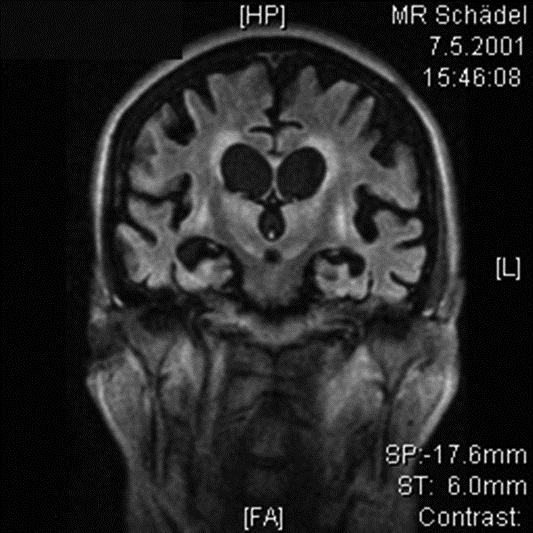Playlist
Show Playlist
Hide Playlist
Persistent Vegetative State
-
Slides Persistent Vegetative State.pdf
-
Reference List Clinical Ethics.pdf
-
Download Lecture Overview
00:01 There may be particular neurologic conditions that bear on clinical ethics, these conditions can be so serious that it requires a discussion with the family members of a patient as to what to do in these circumstances because it may involve life sustaining treatments. 00:21 The first condition I want to talk about is persistent vegetative state. 00:25 So for instance, there's been hypoxic injury to the brain, or maybe there's been trauma to the brain, and the brain is no longer functioning well. 00:34 So in a persistent vegetative state, there going to be certain criteria that need to be met. 00:40 First of all, there's complete unawareness of the self or environment, so the patient has no appreciation of what's going on around them. 00:49 Second, there has to be no evidence of sustained, reproducible, purposeful, or voluntary behavioral responses to either visual auditory, tactile, or noxious stimuli. 01:02 So you try to present various stimuli to the patient, but they have no reaction whatsoever. 01:10 There has to be no evidence of any kind of language comprehension or expression, so when you're speaking, when you're saying the patient's name, there's no evidence that they've taken that in and responding to it. 01:23 There's generally going to be bowel and bladder incontinence. 01:28 They may have preservation of sleep wake cycles, so there might be times where they appear awake and times where they appear asleep. 01:35 But again, there's no conscious awareness when their eyes are open of what's going on around them. 01:43 Has to be the case that there's sufficiently preserved hypothalamic and brainstem autonomic function, that then allows the rest of the body to work, so that permits survival as long as they're getting the appropriate medical and nursing care. 01:59 And lastly, they're going to show some evidence, it doesn't know, it's not consistent, but some preserved cranial nerve or spinal reflexes. 02:11 So there's some evidence that the nervous system is working, but just no awareness of the self or the environment or these other factors of showing brain function.
About the Lecture
The lecture Persistent Vegetative State by Mark Hughes, MD, MA is from the course Ethical Considerations in Palliative Care.
Included Quiz Questions
Which of the following are included in the criteria for a persistent vegetative state? Select all that apply.
- Complete unawareness of self
- No response to stimuli
- No language comprehension
- No sleep-wake cycle
- Sufficient autonomic function to maintain survival
Customer reviews
5,0 of 5 stars
| 5 Stars |
|
5 |
| 4 Stars |
|
0 |
| 3 Stars |
|
0 |
| 2 Stars |
|
0 |
| 1 Star |
|
0 |




